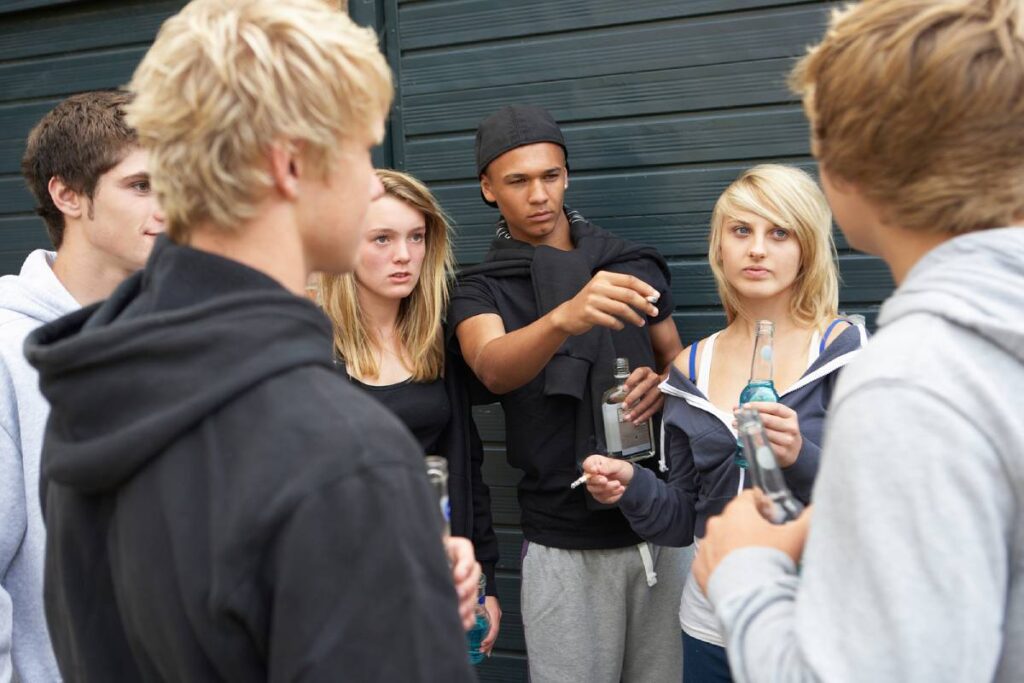
Teens and alcohol have been a trending news topic as some teens have experienced alcohol poisoning from drinking too much. Teenage drinking is a major problem in today’s society, affecting teens and their families. This issue can have a range of negative impacts, from behavioral issues to academic problems.
To address this issue, it is important for parents and other adults to be aware of the warning signs of teenage drinking, as well as the various ways they can help prevent it. Some common warning signs include changes in behavior or mood, unexplained absences from school or other activities, and poor performance at school or work.
Parents and Teen Alcohol Use
There are strategies that parents and other adults can use to help reduce teen alcohol use. These may include setting clear expectations regarding alcohol use, establishing open communication with teens about their concerns, and providing positive reinforcement when appropriate behaviors are demonstrated. Additionally, it is crucial to be aware of the various factors that may put teens at a higher risk for alcohol abuse, such as peer pressure and a family history of substance use.
Teen Drinking and Hazing
Hazing has long been a problem on college campuses, with students engaging in dangerous and humiliating practices as part of initiation into their school organizations. These activities are often fueled by alcohol consumption and can lead to severe injuries or even death.
Adding to the dangers associated with hazing is that it is illegal in most states. Hazing is defined under many state laws as intentionally or recklessly engaging in conduct that creates a substantial risk of physical injury or causes emotional distress to another person. In some cases, hazing can also be charged as assault or battery, depending on the circumstances.
The negative consequences of hazing aren’t just limited to those directly involved in these activities – they can have a ripple effect across the entire campus community. For example, hazing can lead to strained relationships between students and faculty, as well as disciplinary actions taken against perpetrators by college administrators.
So, what can be done to prevent hazing on college campuses? Some schools have implemented hazing prevention programs that educate students about the dangers of hazing and help them develop healthy ways to achieve group bonding. Additionally, stronger oversight from school officials and increased awareness among students is critical in creating a culture where hazing is not tolerated. With these efforts in place, we can work together to reduce this dangerous behavior and ensure the safety of all our student communities.
When is Too Much Alcohol an Emergency?
Alcohol poisoning is a serious condition that can result in complications such as difficulty breathing, irregular heart rate, and seizures. These complications can be extremely dangerous and require immediate medical attention. If you suspect that someone has alcohol poisoning, it is important to seek help right away. This may involve calling 911 or getting the person to an emergency room as quickly as possible. Treatment for alcohol poisoning generally involves supportive care, such as IV fluids and monitoring of vital signs, while the person recovers from their symptoms.
With prompt treatment, complications from alcohol poisoning can be prevented, and the individual can recover.
Preventing Alcohol Poisoning
Some steps you can take to help prevent alcohol poisoning in teens include educating them about the dangers of drinking alcohol excessively, setting clear limits around alcohol consumption, monitoring their alcohol use, and seeking professional help if necessary. By taking these proactive measures, you can help keep your teen safe from the dangers of alcohol poisoning.
Rice Emergency Room Board Certified Emergency Physicians are trained to deal with alcohol-related emergencies. We are here to medically treat and support teens who need alcohol-related emergency medical care.
 24x7 Available
24x7 Available
